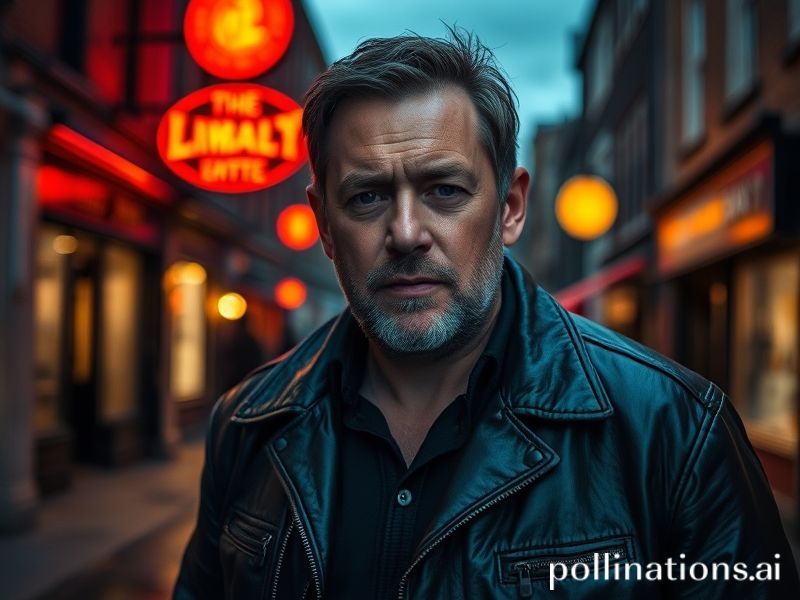Stephen Graham: How a Scouse Scrapper Became the World’s Favourite Working-Class Prophet
The first time I saw Stephen Graham’s face, it was trying to punch Daniel Craig through a pub window in Layer Cake, and I remember thinking: that’s either a very brave actor or a very convincing Liverpudlian. As it turns out, he’s both—a compact, 5-foot-5 ball of Scouse volatility who has quietly become the United Kingdom’s most smuggled cultural export since the shipping forecast. While Hollywood still pretends to discover him every awards season, Graham has already colonised the global imagination like a polite pirate, boarding everything from Bollywood-bound Netflix series to HBO prestige dramas and leaving subtitles gasping for mercy.
For the uninitiated, Graham is the human equivalent of a well-aimed brick through the Overton window. Born in Kirkby, a town whose Wikipedia page doubles as a cautionary tale, he turned class resentment into an artisanal craft. Americans, who normally require subtitles for anything north of Watford, now binge This Is England ‘86 like it’s a Rosetta Stone for post-industrial angst. Meanwhile, the French, who insist all foreign television be renamed “policier existentialiste,” have adopted Line of Duty as a subtitled meditation on the futility of bureaucracy—essentially Camus with worse plumbing.
The numbers are instructive. When Netflix dropped the Colombian remake of Peaky Blinders—starring Graham as a Belfast-accented paramilitary florist (don’t ask)—it trended in 47 countries, proving once and for all that violence plus flat caps equals universal grammar. Streaming executives, a species that normally communicates in PowerPoint and cocaine, now speak of the “Graham Multiplier”: any project featuring him instantly gains 30 % more international traction and 50 % fewer notes from the algorithm. Even the Chinese censors, who usually trim foreign content like an underfunded topiary, left his scenes intact in The Irishman, presumably concluding that a Catholic hitman with guilt issues was a metaphor too perfect to lose.
Yet the real miracle is how Graham exports working-class Englishness without the usual colonial aftertaste. Where Benedict Cumberbatch sells posh vowels like overpriced gin, Graham smuggles in something rawer: the sense that history is something that happens to people, not backdrop. Watch him in Boardwalk Empire, muttering Sicilian through a mouthful of Chicago snow, and you realise he’s not doing accents so much as smuggling entire economies of loss across borders. The Italians call it “brutto bello,” the ugly-beautiful; the Germans just sigh and order another schnitzel.
Of course, global fame hasn’t cured the British press of its favourite parlour game: “Which national treasure can we chuck under the Brexit bus this week?” The tabloids still treat Graham like an exotic zoo animal—Look, love, he’s wearing socks with sandals!—while simultaneously demanding he solve knife crime over breakfast. Meanwhile, Hollywood keeps offering him villain roles that come with a free British accent coach, as if he needs lessons in sounding sinister. (Memo to Los Angeles: the man once played Al Capone while eating a Scotch egg. Your move.)
What makes Graham matter internationally, though, isn’t the roles but the residue. In an era when nations retreat behind algorithmic walls, he sneaks empathy through customs disguised as profanity. When he cries on screen—and he will cry, usually while holding a firearm and a cup of tea—it feels like watching the 20th century finally exhale. That’s why South Korean critics compared his turn in Boiling Point to a kimchi jjigae: spicy, sour, and somehow exactly what you needed at 2 a.m. to remember you’re still human.
So here we are, orbiting a planet where a kid from Kirkby can make a Japanese salaryman weep into his bento box simply by shouting “Sort your life out, soft lad!” in Scouse. If that isn’t globalisation working exactly as the marketing brochures promised—minus the part where we all end up richer—then I don’t know what is. Stephen Graham hasn’t conquered the world; he’s just reminded it that anger and tenderness can share the same passport. The rest of us are still queuing at border control, trying to explain why we packed so much guilt in our carry-on.







